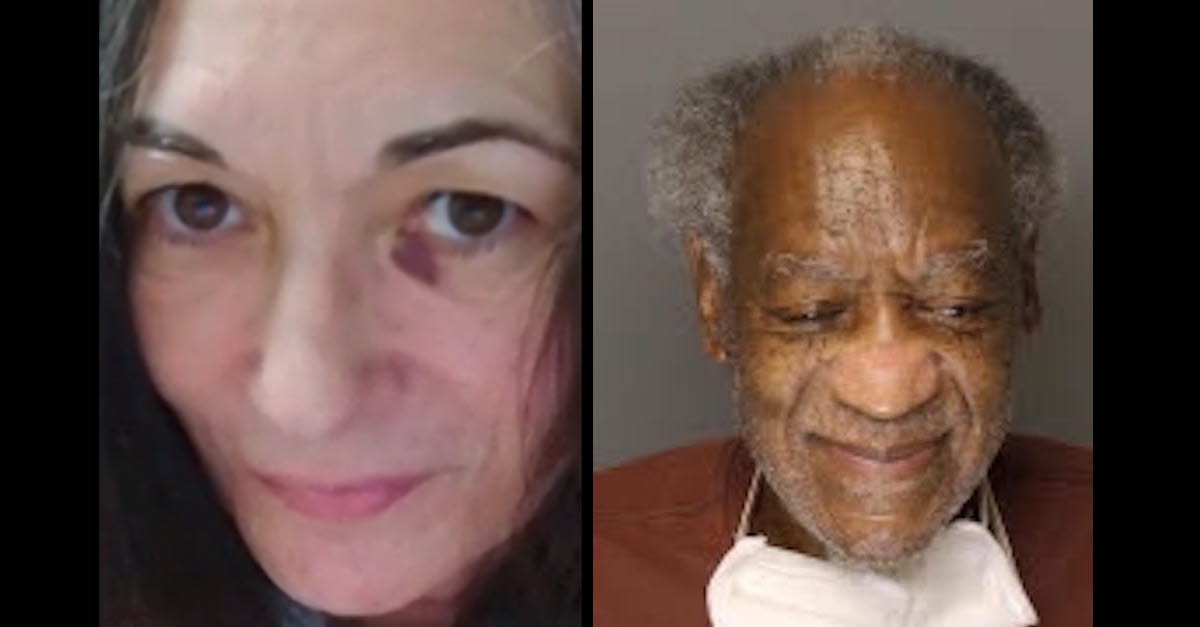
Two days after Pennsylvania’s highest court issued a ruling freeing Bill Cosby, accused sex-trafficker Ghislaine Maxwell told a federal judge that the “same principle” that applied to the former actor and Jello pitch man applies to her.
“We respectfully submit this letter to bring to the Court’s attention the recent decision by the Supreme Court of Pennsylvania in Commonwealth of Pennsylvania v. William Henry Cosby Jr., J-100-2020 (Jun. 30, 2021), in which the court vacated Mr. Cosby’s conviction and sentence because the District Attorney’s Office that prosecuted him failed to live up to its express promise not to prosecute Mr. Cosby for the same crimes for which he was later convicted,” the three-page letter begins, including a copy of the ruling as an exhibit.
“Ms. Maxwell’s case presents a similar situation,” it continues.
The Keystone State’s top court vacated Cosby’s convictions for aggravated indecent assault based upon statements by then-Montgomery County district attorney Bruce Castor, who made a public announcement declining to prosecute the entertainer in 2005. Cosby claimed to rely upon that press release in agreeing to a deposition in a 2005 civil lawsuit brought by Andrea Constand, which was ultimately used against him. Castor later became known for representing former president Donald Trump in his second impeachment trial.
Finding Cosby’s prosecution an impermissible about-face, the Pennsylvania Supreme Court’s majority ruled: “Interactions between a prosecutor and a criminal defendant, including circumstances where the latter seeks enforcement of some promise or assurance made by the former, are not immune from the dictates of due process and fundamental fairness.”
Maxwell’s lawyer Christian R. Everdell analogized that to the case against his accused sex-trafficker client, whom they have claimed to be immunized from prosecution by an unusual 2007 non-prosecution agreement (NPA) federal prosecutors signed with Jeffrey Epstein. That deal came with an extraordinary provision purporting to shield Epstein’s “potential co-conspirators.” Like Cosby, Maxwell subsequently sat for depositions in a civil lawsuit brought by Epstein’s alleged victim Virginia Giuffre.
“As in Cosby, the government is trying to renege on its agreement and prosecute Ms. Maxwell over 25 years later for the exact same offenses for which she was granted immunity in the NPA,” Everdell wrote. “Indeed, the principle applies even more strongly in Ms. Maxwell’s case because the NPA was a formal written agreement, as opposed to an informal promise like the one in Cosby. This is not consistent with principles of fundamental fairness.”
Maxwell’s lawyers have floated these arguments before in her criminal case, and presiding U.S. District Judge Alison Nathan has rejected them.
“The court concludes that the agreement does not apply in this District or to the charged offenses,” Nathan ruled in April.
There is little reason to think the Cosby ruling will change Nathan’s mind on that score. The Supreme Court of Pennsylvania’s Cosby opinion is but persuasive authority — not mandatory authority — for a federal court in New York. Nathan found the non-prosecution agreement inapplicable under a number of different grounds. Judge Nathan noted that the agreement was signed by a U.S. Attorney’s office in Florida with Epstein, and neither Maxwell nor the U.S. Attorney’s office for the Southern District of New York were parties to that agreement.
Judge Nathan also made a point to note the oddity of Epstein’s deal.
“As a recent report from the Department of Justice’s Office of Professional Responsibility observed, the NPA was unusual in many respects, including its breadth, leniency, and secrecy,” she wrote in April. “The U.S. Attorney’s promise not to prosecute unidentified co-conspirators marks a stark departure from normal practice for federal plea agreements. This provision appears to have been added ‘with little discussion or consideration by the prosecutors.’ [ . . . ] The report concluded that the U.S. Attorney’s negotiation and approval of the NPA did not amount to professional misconduct, but nonetheless reflected ‘poor judgment.'”
“Only the NPA’s effect, and not its wisdom, is presently before the court,” Nathan added at the time, finding its effect would still allow for Maxwell’s prosecution.
Undeterred, Maxwell’s lawyers asked for the principles articulated in the Cosby decision to lead the court to dismiss four of the eight counts contained in their client’s superseding indictment. Maxwell’s trial has been scheduled for November.
Read the letter below:
[Ghislaine Maxwell via court documents; Bill Cosby via Pennsylvania prison mugshot]